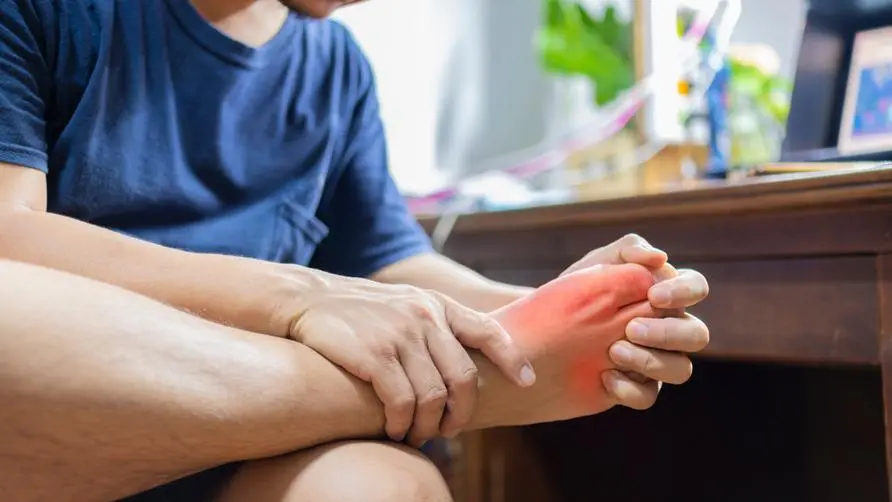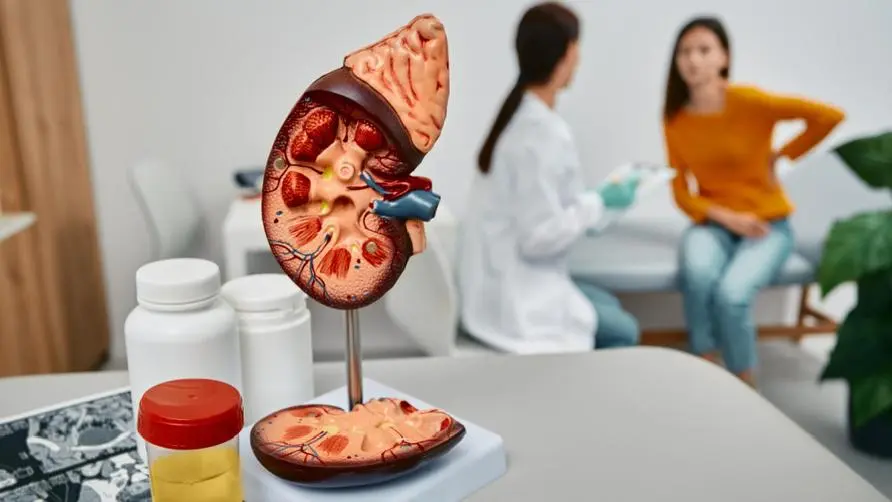Is it possible to get gout even if you don't eat seafood? Is it likely to affect the "lower body" if you leave it alone? Doctors reveal the worst outcome: all kidneys are damaged

Is untreated gout likely to lead to “risks of kidney dialysis”? Are obesity, drinking, and high blood pressure the culprits?
If gout is not treated in time, may it lead to the risk of “kidney dialysis”? Dr. Lin Hong’an, Director of the Metabolism Department of Taiwan Ministry of Health and Welfare Losheng Sanatorium, said that a 60-year-old patient had gout for several years. He went to the clinic to receive injections, medicines and other treatments without significant improvement, and he felt increasingly tired, so he sought medical treatment. After taking blood, it was discovered that the GFR (glomerular filtration rate) dropped to 20 ml/min/1.73m2, indicating that he was suffering from the fourth stage of “chronic renal failure”.
Dr. Lin Hongan said that gout is a chronic disease, also known as “metabolic arthritis”. The reason is that the human body releases “Purine” when it decomposes or metabolizes food and eliminates old and waste cells, and Purine forms uric acid after metabolism. When the concentration of uric acid in the blood is too high and exceeds the level that the human body can dissolve, “uric acid crystal salts” are formed. If they accumulate in the joints, they can easily cause redness, swelling, inflammation and other reactions, leading to gout.
Dr. Lin Hongan further explained that patients with “primary gout” are mainly caused by genetic factors, while patients with “secondary gout” are caused by other diseases, such as obesity, excessive drinking, high blood pressure or drugs (such as diuretics, immunosuppressants) etc.), causing increased uric acid production in the body or decreased uric acid excretion by the kidneys.
Doctors reveal the “4 major stages” of gout symptoms. Failure to control the disease during this period may “take a turn for the worse”
Dr. Lin Hongan further stated that the clinical symptoms of gout are divided into 4 stages from the early stage to the later stage:
Asymptomatic hyperuricemia. At this stage, if there is only high uric acid but no other condition, drug treatment is not required.
Acute gouty arthritis. Physicians will use colchicine and non-steroidal anti-inflammatory drugs to relieve the symptoms of redness, swelling, heat and pain in the joints during the attack.
No intermittent period. Patients should consciously control uric acid levels at this time to help stabilize the condition; otherwise, it may lead to repeated attacks of arthritis or chronic gout.
Chronic tophi arthritis. Because gout crystals accumulate over the years and form tophi, it is necessary to take uric acid-lowering drugs to control the blood uric acid concentration and reduce recurring attacks.
Dr. Lin Hongan emphasized that gout is a risk factor for chronic kidney disease and kidney stones, so it is recommended that gout patients should receive regular screening for chronic kidney disease. In addition, high uric acid may directly form uric acid stones. If it causes obstruction in the urinary system and affects urination, if urine continues to flow back and accumulate, it may also cause hydronephrosis and renal failure.
Can you still get gout if you don’t eat offal and seafood? The risk of drinking a hand-shaken drink every day “surges by 1.7 times”
Dr. Lin Hongan pointed out that most people think that as long as they avoid high-purine foods such as offal, seafood, and too much red meat, they do not need to worry about gout attacks. In fact, foods and beverages high in fructose, corn syrup, and alcohol can increase the accumulation of uric acid in the body. According to a study in the Journal of the American Medical Association, consuming 500cc of sugary drinks per day is enough to increase the risk of hyperuricemia by 1.74 times.
Therefore, Dr. Lin Hongan appeals to the public, in addition to paying attention to maintaining an ideal weight, reducing high-risk foods such as offal, red meat, fructose/corn syrup, etc., as well as paying attention to alcohol intake and not developing an alcoholic habit. Only by doing the above can we truly stay away from high uric acid and gout. If you have experienced severe joint pain recently, you should seek medical treatment and medication as soon as possible in order to improve your symptoms and return to your normal life.
Further reading:





